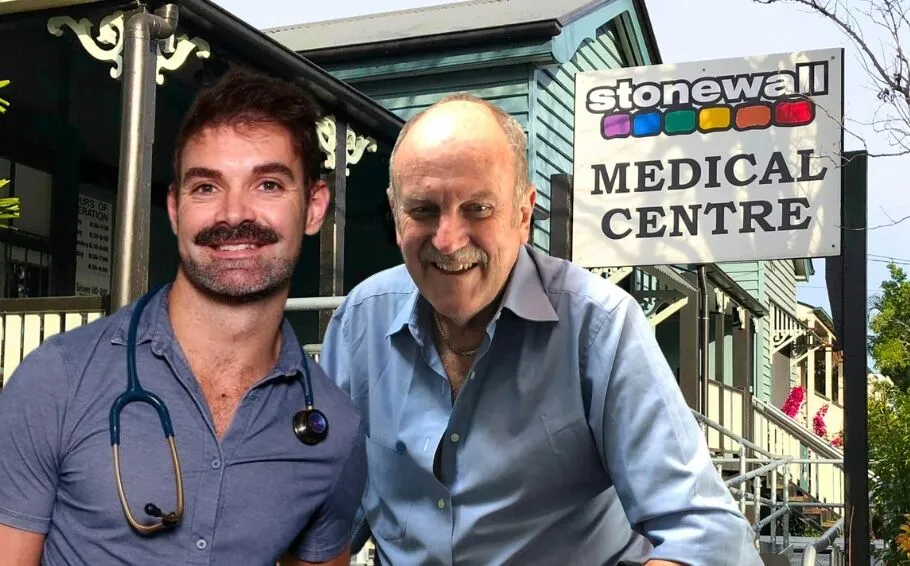In the intricate dance of human physiology, where desire and biology intertwine, the interplay of astrocytes, sex hormones, and the gut-brain axis emerges as a provocative frontier in understanding gay sexuality and intimacy. These unseen forces—cells in the brain, hormones coursing through the body, and the gut’s microbial whispers—shape not just health but the very essence of erotic connection, sensuality, and emotional bonds in gay relationships. This exploration delves into how these elements ignite passion, fuel longing, and deepen the intimate experiences that define queer love.
The Astrocyte’s Sensual Symphony
Astrocytes, the star-shaped cells cradling the brain’s neurons, are more than mere support players—they are conductors of desire. These cells regulate neurotransmitters like dopamine and serotonin, which pulse through moments of electric attraction and heart-pounding lust. In gay men, astrocytes respond to testosterone and estrogen fluctuations, amplifying the brain’s sensitivity to erotic stimuli. Picture a heated glance across a dimly lit bar, where a surge of dopamine, orchestrated by astrocytes, transforms a fleeting moment into a craving for touch. Research shows astrocytes also modulate neuroinflammation, which can affect mood and sexual responsiveness, making them pivotal in the emotional highs and lows of queer romance.
Astrocytes and Erotic Resilience
In the throes of intimacy, astrocytes help stabilize the brain’s response to stress, ensuring that vulnerability—whether in a tender embrace or a sweaty, breathless encounter—feels safe and exhilarating. For gay couples navigating societal pressures, this cellular resilience fosters a deeper connection, allowing partners to surrender to raw, unfiltered desire. A 2024 study in *Nature Neuroscience* revealed that astrocytes in the hypothalamus, a region tied to sexual behavior, are particularly active in response to intimate touch, enhancing the sensory rush of skin against skin.
“The brain is the ultimate erogenous zone. Astrocytes don’t just support neurons—they amplify the spark of connection, especially in queer love, where intimacy is both rebellion and refuge.” — Dr. Elias Martinez, neuroscientist and advocate for LGBTQ+ health
Sex Hormones: The Pulse of Passion
Testosterone and estrogen are the body’s alchemists, transforming raw biology into the poetry of attraction. In gay men, testosterone fuels primal urges—the need to chase, to claim, to devour—while estrogen, often overlooked, softens the edges, nurturing emotional intimacy. These hormones ebb and flow, influenced by stress, diet, and even the gut-brain axis, creating a dynamic interplay that shapes sexual identity and desire. For instance, higher testosterone levels in some gay men correlate with increased sexual assertiveness, while balanced estrogen fosters empathy, making late-night confessions as intimate as physical encounters.
Hormonal Heat in Queer Romance
Imagine a sultry summer night, bodies pressed close in a dance of sweat and rhythm. Testosterone spikes, driving urgent, animalistic need, while estrogen tempers the frenzy, inviting lingering kisses and whispered promises. This hormonal dance is not just biological—it’s cultural. In gay spaces, from the vibrant clubs of Berlin to the underground scenes of Mumbai’s *Andaz Apna Apna*, hormones amplify the shared energy of community, where every touch feels like a rebellion against restraint. Studies indicate that gay men with higher testosterone variability report more intense sexual experiences, a fact that pulses through every stolen glance and bold caress.
“Hormones are the soundtrack of desire. In gay love, they’re the bassline—deep, resonant, and impossible to ignore.” — Arjun Sethi, Bollywood choreographer and queer icon
The Gut-Brain Axis: A Hidden Erotic Engine
Beneath the surface, the gut-brain axis hums with influence, a microbial orchestra tuning the body’s sexual and emotional responses. The gut, often called the “second brain,” communicates with the central nervous system via the vagus nerve, modulating mood, stress, and even sexual appetite. For gay men, a healthy gut microbiome—nurtured by diet, sleep, and stress management—can enhance serotonin production, creating a sense of euphoria that heightens intimacy. Picture a candlelit dinner, where a shared meal of probiotic-rich foods like yogurt or fermented pickles sparks not just conversation but a visceral pull toward connection.
Gut Instincts and Intimate Bonds
The gut-brain axis also regulates cortisol, the stress hormone that can dampen desire. In queer relationships, where external pressures like stigma or familial expectations loom, a balanced gut can mean the difference between a night of uninhibited passion and one clouded by anxiety. Research from *The Lancet* in 2025 suggests that gut microbiota influence oxytocin release, the “love hormone” that floods the body during orgasm or a tender embrace. For gay couples, this biological loop transforms a simple touch into a cataclysm of closeness, binding partners in ways that defy words.
Culture and Erotic Expression
Gay culture thrives on the celebration of sensuality, where astrocytes, hormones, and the gut-brain axis converge to create moments of transcendent connection. From the pulsing beats of *Pose*’s ballroom scenes to the raw intimacy of *Call Me By Your Name*, queer narratives amplify the interplay of biology and desire. In gay spaces, eroticism is both personal and communal—a shared language of glances, touches, and unspoken promises. The gut-brain axis fuels the confidence to strut, the hormones drive the hunger to connect, and astrocytes ensure the memory of every sizzling encounter lingers long after the night ends.
“In gay culture, every touch is a story, every kiss a revolution. Our bodies speak what words cannot.” — Rupaul, drag legend and cultural pioneer
Wellness for Erotic Vitality
To sustain this erotic alchemy, wellness is key. A diet rich in omega-3s, probiotics, and antioxidants supports astrocyte function and gut health, while regular exercise boosts testosterone and serotonin, fueling both physical stamina and emotional depth. Mindfulness practices, like meditation or tantric yoga, enhance the gut-brain connection, allowing gay men to stay present in moments of intimacy, whether it’s a slow, teasing caress or a frenzied collision of bodies. Sleep, too, is a silent aphrodisiac—adequate rest regulates hormones and astrocytes, ensuring that desire burns bright.
In the end, the interplay of astrocytes, sex hormones, and the gut-brain axis is a testament to the complexity of gay desire. It’s a reminder that every pulse of attraction, every shiver of touch, is rooted in the body’s deepest systems, working in harmony to create moments of unapologetic, breathtaking intimacy. For gay men, this biological symphony is not just science—it’s the rhythm of love, lust, and connection that defines their world.














0 Comments